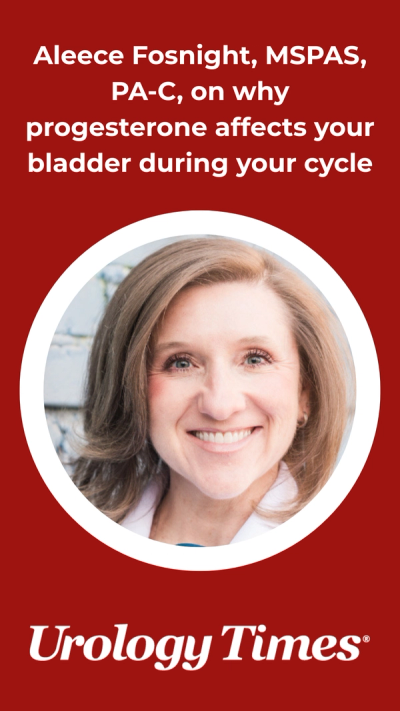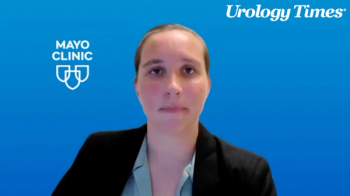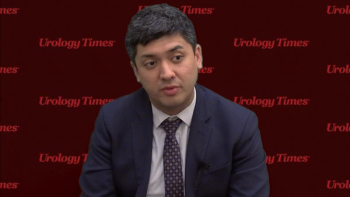
OAB and Incontinence
Latest News
Video Series

Latest Videos
Shorts







Podcasts
CME Content
More News

The Altaviva device is a minimally invasive implantable tibial neuromodulation therapy for patients with urge urinary incontinence.

Fosnight emphasizes that the cycle of shame, secrecy, and loneliness compounds the burden of urinary incontinence far beyond its physical effects.

The tool is designed as a patient-facing application that can be used both during clinic visits and independently at home.

Aleece Fosnight, MSPAS, PA-C, CSC-S, CSE, IF, MSCP, HAES, emphasizes a careful, individualized approach to managing bladder and bowel symptoms in women with a history of disordered eating.

Aleece Fosnight, MSPAS, PA-C, emphasizes that any patient presenting with urinary incontinence or related symptoms should be evaluated for pelvic floor dysfunction.

Findlay advocated for comprehensive patient counseling that includes the full range of BMS options, not just those available within a provider’s immediate practice.

On the urinary side, Fosnight prioritizes pelvic floor physical therapy as a first-line intervention for incontinence, citing evidence of significant symptom improvement.

A recap of the FDA submissions and regulatory decisions in urology from July 2025.

A key diagnostic clue is that individuals with disordered eating often have unusually precise awareness of their food and fluid intake.

Beyond clinical metrics, Pezzella praised the device’s user-friendly, sophisticated design.

Aleece Fosnight, MSPAS, PA-C, CSC-S, CSE, IF, MSCP, HAES, discusses the strong connection between eating disorders and urinary incontinence in women.

Andrea Pezzella, MD, URPS, FACOG, stressed the need for offering patients comprehensive information on all available therapies.

Clean intermittent catheterization emerged as the second most commonly used bladder management method over time in both sexes.

The SOPHIA2 trial will assess the safety and efficacy of the UroActive implant in men with SUI.

Pezzella said she believes Neuspera offers a "smart, integrated, sophisticated alternative" for treating overactive bladder symptoms.

Among the content is additional information on types of urinary incontinence, ways to control urgency, and frequently asked questions about a healthy bladder.

Colin M. Goudelocke, MD, discusses the PEER trials, which are assessing the safety and efficacy of SNM lead sensing for optimizing SNM programming.

Benjamin M. Brucker, MD, outlines considerations surrounding pre-procedure urinalysis, prophylactic periprocedural antibiotics, and optimal dosing regimens for onabotA administration.

Take a look through all the regulatory milestones in urology from the first half of the 2025.

Here’s a look back at notable news between April and June 2025.

A recap of the FDA submissions and regulatory decisions in urology from June 2025.

The findings strongly support a proactive approach to identifying and referring patients with poor urinary function after RP.

Treatment with the Revi System led to durable QOL benefits at 24 months, even among those patients who did not achieve the primary end point.

Howard B. Goldman, MD, FACS, discusses innovations such as tibial nerve stimulation devices, pudendal nerve targeting, and alternative stimulation frequencies.

Amir S. Patel, MD, discusses interim findings from a randomized controlled trial of onabotulinumtoxinA injection at the time of HoLEP vs standard treatment.























